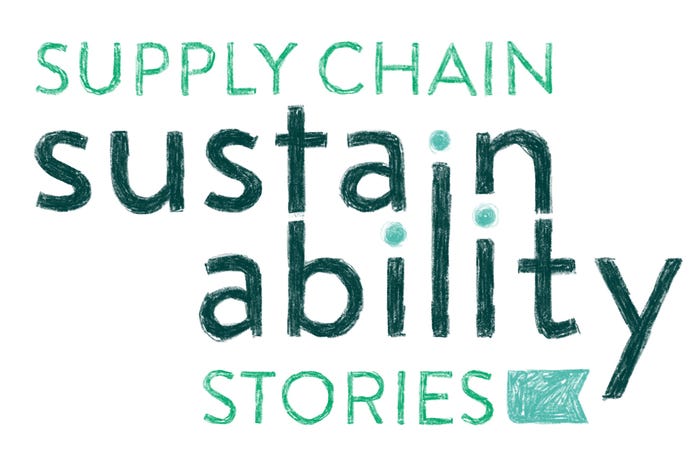August 19, 2024

Sponsored Content
The supply chain shift to sustainability: Suppliers commit to diverse strategies - report
The natural products industry represents a relatively small percentage of the global greenhouse gas emissions that are impacting our climate. But many stakeholders in the space are working to have an outsized impact on this contribution by using resources responsibly, giving back to the communities in which they work and collaborating to develop new strategies that not only address climate issues, but also produce new and better business models.
This special report on sustainability brought you by Supply Chain Sustainability Stories digs into some of the major challenges faced by natural products industry suppliers and brands today. Read more here.
Sustainability professionals are grappling with balancing the positive and negative aspects of their companies’ implementation of artificial intelligence on their climate and sustainability initiatives, with many worried about the environmental impact of the new technology, while also anticipating benefits ranging from AI’s ability to support supply chain management efforts to ESG reporting and regulatory compliance, according to a new survey released by CRM solutions provider Salesforce.
For the study, Salesforce conducted a double-anonymous survey in partnership with research data and analytics technology group YouGov, covering more than 450 sustainability professionals at companies across a range of sectors, in the U.S., Canada and the UK. Read more here.
Ingredients in peril due to climate change - article
Commodities like coffee, cocoa, and olive oil have faced highly publicized supply chain woes in recent months. Some companies have even gone as far to replace the ingredients in products traditionally included with the help of technology. Voyage Foods, for example, is making cocoa-free chips and melting wafers.
Frank Jaksch, CEO of Ayana Bio, a technology company that produces bioactive ingredients to support health and wellness, told Food Dive in an interview that the amount of ingredients and crops in jeopardy is only increasing.
“This is not a new trend, it’s just getting more attention now,” said Jaksch. “There have been crops affected by climate change but now there are other crops that haven’t gotten a lot of attention and these will continue to grow.” Read more here.
Starbucks, Huhtamaki partner on compostable cold cups - article
Finland-based packaging company Huhtamaki is helping Starbucks launch new fiber-based, compostable cups for cold beverages in select locations.
The compostable cups and lids initially will roll out in 24 stores, based on local mandates, and more markets are likely to be added in the future, a Starbucks spokesperson said via email.
Starbucks’ recent work on its cups and lids aligns with the three new 2030 targets the company unveiled in its latest sustainability report that are related to consumer-facing packaging: Make it 100% reusable, recyclable or compostable; ensure it’s sourced from 50% recycled materials; and make it using 50% less virgin fossil fuel-derived sources. Read more here.
Notes from the field: Industry suppliers double down on CSR initiatives, support circular economies - article
Suppliers staying on top of sustainability efforts will tell you it is a relentless pursuit that must be embedded in the company’s mission and supported from the top down. It also involves a deep organizational understanding of supply chain factors, resource usage and corporate social responsibility measures. To keep industry brands up on the broad range of efforts suppliers around the world are making to improve their supply chains, we introduce Supply Chain Sustainability Stories: Notes from the field. In this edition, learn about CSR initiatives from K Patel Phyto Extractions in Mumbai India; Microphyt, a worldwide leader in the development of natural, bioactive ingredients derived from microalgae in Baillargues, France; and Indena, a Milan-based company dedicated to the identification, development and production of high quality active principles derived from plants. Read more here.
The future of organic – article
After a long streak of solid year-over-year growth that outpaced the conventional marketplace, the pace of growth for the organic industry began to slow from 2022 into 2023. Challenged by supply chain limitations and the rising costs of line items such as transportation and labor, the stalling of growth was compounded by tightening consumer pocketbooks with the onset of inflation. In 2023, the organic marketplace hit record dollar sales of $69.7 billion but with slower growth of 3.4% according to the Organic Trade Association’s most recent industry report.
Yet industry numbers alone don’t tell the whole story. Even though organic was one of those places where inflationary impacts caused consumers to pull back, today, there is a much deeper and exciting story unfolding. What else resonates? The pillars of sustainability. Read more here.
NBJ honors two organizations for specific sustainability efforts
In the recent annual NBJ Awards, the editors recognized two organizations for outstanding efforts in sustainability.
One of the recipients is the Sustainable Herbs Initiative, founded by Ann Armbrecht, who for more than a decade, has been a champion for work that educates industry and consumers about the challenges—and opportunities—around sustainable sourcing of herbal products. Armbrecht�’s mission has been to rebuild connections, to offer opportunities for collaboration and to provide the necessary insights and education to fuel the journey toward a more sustainable, people-centric botanicals industry.
The second is Appalachian Sustainable Development’s Herb Hub which connects brands with wildcrafters with growers. Founder Katie Commender's project is working to revitalize the coal-impact region of Appalachia, where she sees stories of culture and tradition, but most importantly potential. ASD’s Herb Hub brings those stories together as a business model for small producers of woodland herbs and botanicals and independent wildcrafters trained to sustainably harvest wild-growing plants, connecting them to herbal product companies looking to responsibly access the unique and rich ecosystems of Central Appalachia.
Read more about:
ReportsYou May Also Like
